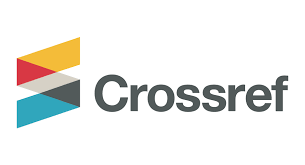Analisa Yuridis Terhadap Hak Korban dalam Upaya Hukum Banding dan Kasasi ditinjau dari Ius Constituendum
 Abstract views: 231
,
Abstract views: 231
,
 PDF downloads: 181
PDF downloads: 181
Abstract
Penelitian ini berpandangan ius constituendum, sehingga bertujuan untuk membentuk hukum yang dicita-citakan. Pada hukum acara pidana saat ini belum ada perlindungan hak bagi korban suatu tindak pidana untuk melakukan upaya hukum banding. Perlindungan hak ini penting apabila dalam putusan hakim tahap pertama korban tidak mendapatkan rasa keadilan serta penuntut umum tidak melakukan upaya banding atas putusan tersebut. Sehingga diperlukan penelitian tipe normatif dengan pendekatan konseptual untuk menemukan konsep atau norma baru yang dapat dimasukkan menjadi hukum acara pidana. Upaya perlindungan hak korban untuk meminta penuntut umum melakukan upaya banding menjadi urgensi agar peradilan benar-benar mencari kebenaran materiil dari suatu perkara. Sebab ada beberapa celah yang harus ditutup agar penuntut umum bermuara pada penegakan hukum yang berdasar pada Ketuhanan Yang Maha Esa.
Downloads
References
2014.
Ali Dahwir, Rekonstruksi Perlindungan Hak-hak Korban Kejahatan di Indonesia (Pemidanaan
Berorientasi pada Korban Kejahatan), Jurnal Law Pro Justitia, Vol. 2 No. 2, 2017.
Ali Zaidan, Menuju Pembaruan Hukum Pidana, Sinar Grafika, Jakarta, 2015, hlm. 115. Dikutip
oleh Michael Barama, Model Sistem Peradilan Pidana Dalam Perkembangan, Jurnal Ilmu Hukum, Vol. 3 No. 8, 2016.
Bilryan Lumempouw, Hak Terdakwa Melakukan Upaya Hukum Dalam Proses Peradilan Pidana,
Lex Crimen, Vol. 2 No. 3, 2013.
Janpatar Simamora, Kepastian Hukum Pengajuan Kasasi oleh Jaksa Penuntut Umum Terhadap
Vonis Bebas, Jurnal Yudisial, Vol. 7 No. 1, 2014.
Ketut Adi Wirawan, Perlindungan Terhadap Korban Sebagai Penyeimbang Asas Legalitas, Jurnal
Advokasi, Vol. 5 No. 2, 2015.
Lilik Mulyadi, Upaya Hukum yang Dilakukan Korban Kejahatan Dikaji dari Perspektif Sistem
Peradilan Pidana Dalam Putusan Mahamah Agung Republik Indonesia.
Marcsellino Hertoni, Independensi Hakim Dalam Mencari Kebenaran Materiil, Lex Crimen, Vol.
5 No. 1, 2016.
Ni Putu Yuliartini, Kedudukan Korban Kejahatan Dalam Sistem Peradilan Pidana di Indonesia
Berdasarkan Kitab Undang-Undang Hukum Acara Pidana, (KUHAP), Vol. 1 No. 1, 2015.
Putra Halomoan Hsb, Tinjauan Yuridis Tentang Upaya-Upaya Hukum, Yurisprudentia, Vol. 1
No. 1, 2015.
Rena Yulia, Mengkaji Kembali Posisi Korban Kejahatan Dalam Sistem Peradilan Pidana,
Mimbar Hukum, Vol. 28 No. 1, 2016.
Rendi Renaldi Mumbunan, Upaya Hukum Biasa dan Luar Biasa, Terhadap Putusan Hakim
Dalam Perkara Pidana, Lex Crimen, Vol. 7 No. 10, 2018.
Publishing your paper with As-Shahifah : Journal of Constitutional Law and Governance means that the author or authors retain the copyright in the paper. As-Shahifah granted an exclusive non commercial reuse license by the author(s), but the author(s) are able to put the paper onto a website, distribute it to colleagues, give it to students, use it in your thesis etc, so long as the use is not directed at commercial advantage or toward private monetary gain. The author(s) can reuse the figures and tables and other information contained in their paper published by As-Shahifah in future papers or work without having to ask anyone for permission, provided that the figures, tables or other information that is included in the new paper or work properly references the published paper as the source of the figures, tables or other information, and the new paper or work is not direct at private monetary gain or commercial advantage.
As-Shahifah journal provides immediate open access to its content on the principle that making research freely available to the public supports a greater global exchange of knowledge. This journal is licensed under a Creative Commons Attribution-ShareAlike 4.0.This license lets others remix, tweak, and build upon your work non-commercially, and although their new works must also acknowledge & be non-commercial, they don’t have to license their derivative works on the same terms.
As-Shahifah journal Open Access articles are distributed under this Creative Commons Attribution-ShareAlike 4.0 International License (CC BY-SA). Articles can be read and shared for noncommercial purposes under the following conditions:
- BY: Attribution must be given to the original source (Attribution)
- SA: If you remix, transform, or build upon the material, you must distribute your contributions under the same license as the original.










